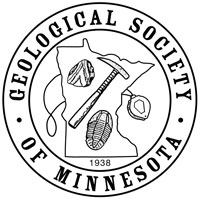Damaging earthquakes continue in Oklahoma nearly a decade after peak wastewater injection (V)
Seminar Lab Date:
Seminar Lab presenter:
Seminar Lab Subject:
Seminar Lab Location :
Virtual lecture 7:00 PM CT.
Participation instructions will be e-mailed to GSM members. If you are not a member of GSM and wish to attend this free seminar online, register as follows by 8 AM CT Monday, Oct 14: Go to the Contact menu above and select "Ask GSM". In the form that appears, enter your name and e-mail address. Enter "Oct 14 lecture" in the subject line. In the message body, please enter the city and state or country from which you will view the seminar. You will receive instructions by e-mail prior to the lecture. Check your spam folder if the instructions do not appear in your in-box at least one hour prior to the lecture.
Seminar Lab Details:
Summary: In Oklahoma, seismicity peaked in 2015 when there were ~900 M3.0+ earthquakes, relative to a tectonic background rate of just 1-2 M3.0+ earthquakes per year prior to 2009. Many of those events are now understood to have been induced by wastewater disposal, some of which caused moderate but not widespread damage to the rural communities in which they occurred. While the rate of earthquakes has significantly declined, such that there were 18 and 20 M3.0+ earthquakes in 2023 and so far in 2024, respectively, seismicity across the state remains several times the rate of pre-2009. In January 2024, there was a series of M4.0+ earthquakes near Edmond, OK, a suburb of Oklahoma City, that were felt widely across the metro area. Then in February 2024, an M5.1 earthquake occurred near the epicenter of the 2011 Prague M5.7 earthquake. Both sequences were seismically active throughout the last decade, with only months-long periods of quiescence since initiation of activity, during a time period of broadly decreasing wastewater disposal. The damaging events, amidst declining injection trends, have important implications for understanding long-lived hazards in areas experiencing human-induced seismicity.
Biography: Dr. Jake Walter is the State Seismologist at the Oklahoma Geological Survey, a University Department and state agency, and affiliate faculty in the School of Geosciences at the University of Oklahoma. He has research interests in earthquake seismology, geohazards, glaciology, and induced seismicity. He is the author of over 40 peer-reviewed publications and has led NSF, DOE, NASA, and FEMA grants. He assists state emergency management and other state agencies with earthquake-related matters and engages in science outreach for audiences at all age levels across the state.
